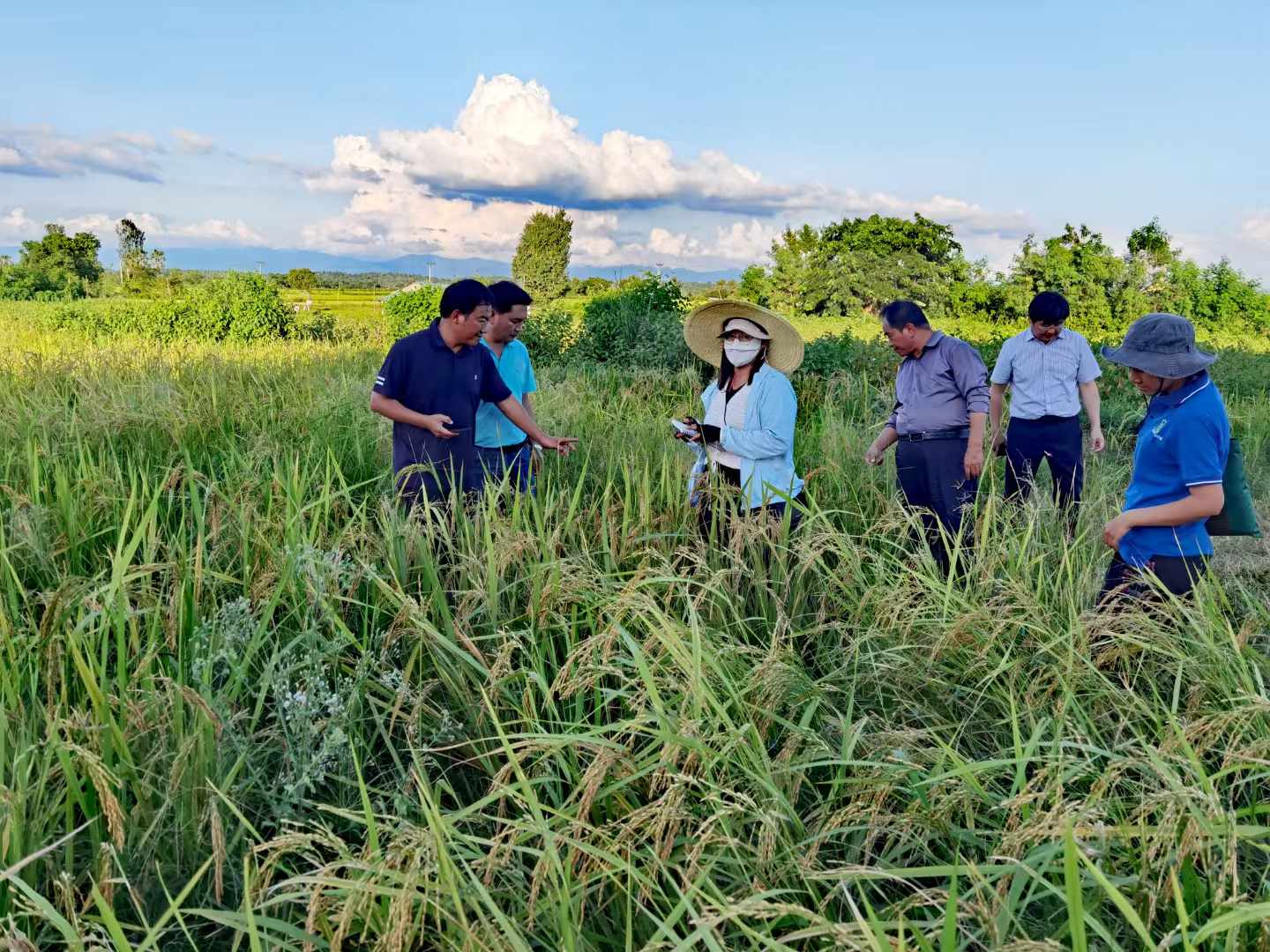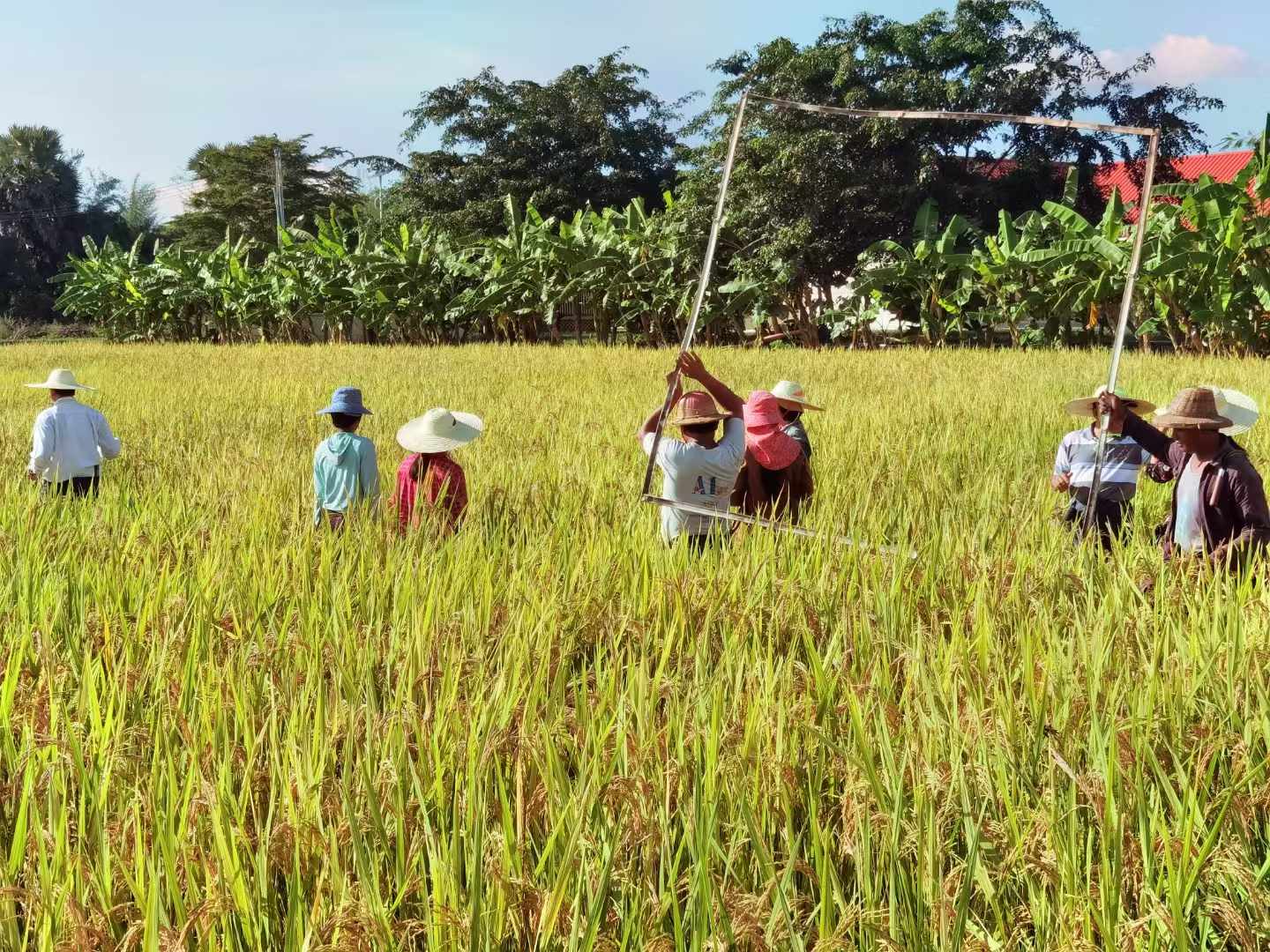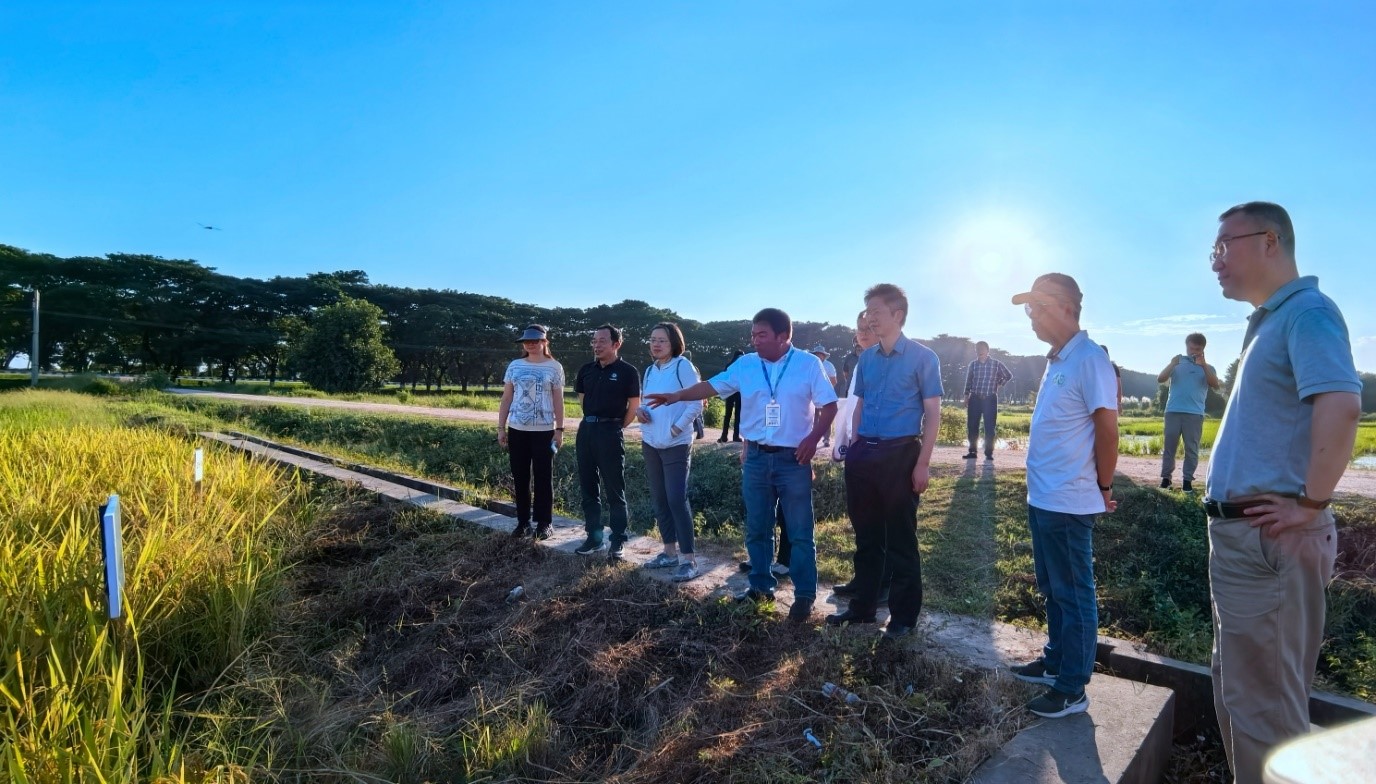Six new upland rice strains bred in collaboration between the Xishuangbanna Tropical Botanical Garden (XTBG) and the Agricultural Research Department of the Myanmar Ministry of Agriculture, Livestock, and Irrigation were successfully tested and accepted at the demonstration base in Naypyidaw's Aungdayar Township from October 26-31.
The expert group conducted an on-site inspection of the growth of six new upland rice varieties ZK-MUR1, ZK-MUR2, ZK-MUR3, ZK-MUR4, ZK-MUR5, and ZK-MUR6 planted at the base, in accordance with the methods for measuring and accepting crops in Myanmar.
The expert group selected the local main cultivar "Sinthukha" as a control, and conducted yield acceptance checks at representative points for each new strain and the control variety, calculating the actual yield of each new strain. The yield of the control variety "Sinthukha" was 2109.09 kg/ha, while the yields of the six new strains ranged from 3478.98 to 4597.54 kg/ha, representing increases of 95.75%, 104.30%, 108.00%, 117.99%, 64.95%, and 67.25% respectively.
The yields of the six new strains were significantly higher and their growth period was shorter, approximately 20 days than the local controls. In the fields, these strains demonstrated consistent stability, strong drought resistance, and resistance to major diseases such as bacterial leaf blight and rice blast. They also exhibited good color changes during maturation and excellent appearance quality. By adopting dry direct seeding and simple cultivation management, relying entirely on natural rainfall throughout the growth period, it saved labor and fertilizer compared to transplanting, resulting in higher production efficiency.
The experts recommend further strengthening research on high-yield cultivation techniques, expanding experimental demonstration areas, accelerating the approval and promotion of new varieties, and achieving industrial application in Myanmar.
It coincided with the 10th anniversary of the China-Myanmar cooperation on biodiversity conservation and sustainable development. Representatives from both sides visited the demonstration base. Prof. Xu Peng introduced the overall situation and application prospects of the new strains displayed at the demonstration base.

At the demonstration base.

Measuring the yields.

Experts at the demonstration base.



